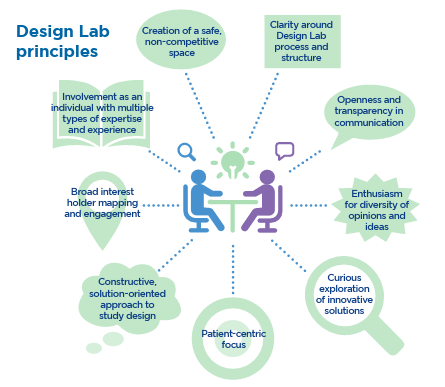Efficacy-to-Effectiveness (E2E) Design May Improve Treatment Selection Accuracy
BOSTON (March 19, 2014) – Experts across academia, industry and government propose a new method for health care providers to get the right treatments to the right patients at the right time. This new approach, A Proposal for Integrated Efficacy-to-Effectiveness (E2E) Clinical Trials, published in Nature Clinical Pharmacology & Therapeutics, recommends a seamless transition from controlled experiments to real-world comparative effectiveness trials. This continuum will improve the accuracy of treatment selection and better determine how those treatments work on different groups of people.
Efficacy trials are conducted in optimal conditions with patients who have similar characteristics. These trials are typically used to secure regulatory approval for a drug.
Effectiveness trials are conducted in more typical clinical settings, with patients who have varying characteristics. These trials are designed to determine whether treatment effects identified in efficacy trials carry over to more typical uses of drugs in practice.
Currently, efficacy and effectiveness trials are conducted separately, and effectiveness trials may occur years later or not at all. In the E2E model, an effectiveness trial starts immediately after the efficacy trial is completed (or as soon as possible, depending upon a predetermined approval process). Data derived from the efficacy trial can be used to formulate questions to investigate during the effectiveness trial; data derived from the effectiveness trial can then be used to assist patients and providers in making individual treatment decisions.
Development of the E2E approach was led by Harry P. Selker, MD, MSPH of Tufts Clinical and Translational Science Institute (CTSI) and Tufts Medical Center’s Institute for Clinical Research and Health Policy Studies (ICRHPS), with assistance from Aaron Kirby, MSc, Tufts CTSI’s Manager of Project Administration. The research team includes:
- Kenneth A. Oye, PhD, Massachusetts Institute of Technology (MIT)
- Hans-Georg Eichler, MD, MSc, European Medicines Agency
- Norman L. Stockbridge, MD, PhD, US Food and Drug Administration, Center for Drug Evaluation and Research
- Cyrus R. Mehta, PhD, Harvard School of Public Health
- Kenneth I. Kaitin, PhD, Tufts Center for the Study of Drug Development
- Newell McElwee, PharmD, MSPH, Merck & Co.
- Peter K. Honig, MD, MPH, AstraZeneca
- John K. Erban, MD, Tufts Cancer Center
- Ralph B. D’Agostino, PhD, Boston University; Harvard Clinical Research Institute
“The E2E approach represents a fundamental shift in a drug development model that has remained basically unchanged for over fifty years,” suggests Kenneth I. Kaitin, PhD, director of the Tufts Center for the Study of Drug Development and research professor at Tufts University School of Medicine. “Although adoption of the approach is not without its challenges, there are likely to be many winners: industry, who will gain better understanding of a drug’s utility, enabling differentiation from competitors; regulators, who will have greater understanding of the drug’s safe and effective use in heterogeneous populations; payers, who will be able to make more informed reimbursement and coverage decisions; and of course physicians and patients, who will benefit from real-world data on the benefits and risks of new medicines.”
“There is growing realization that the difference between efficacy and effectiveness is not just a challenge for drug regulation, but also an underutilised learning opportunity,” says Hans-Georg Eichler, MD, MSc, of European Medicines Agency, “the heterogeneity of real-life treatment populations may help identify non-responders or non-tolerators, and such insights may not be gained from the rather homogenous clinical trial populations. Realizing this learning opportunity will require pre-planned and cost-effective studies: the E2E trial may be exactly what’s needed.”
The authors hope practitioners will consider the E2E model for future trials.
The E2E investigation and report were supported by the National Institutes of Health National Center for Research Resources (under award number UL1RR025752) and National Center for Advancing Translational Sciences (under award number UL1TR000073). The content is solely the responsibility of the authors and does not necessarily represent the official views of the European Medicines Agency, the US Food and Drug Administration, or the NIH.
#####
About Tufts Clinical and Translational Science Institute (CTSI)
Tufts CTSI (www.tuftsctsi.org), a National Institutes of Health (NIH)-supported partnership among all the schools and hospitals of Tufts University, Northeastern University, Brandeis University, RAND, and healthcare industry and community organizations, was established in August 2008. Its purpose is to accelerate the translation of laboratory and medical research into clinical use, widespread medical practice, and into improved healthcare delivery and health policy. It connects people to research resources, consultation, and education, and fosters collaboration with scholars of all disciplines and with community members, with the ultimate goal of improving the health of the public. Tufts CTSI is currently funded by the NIH National Center for Advancing Translational Sciences, award number UL1TR001064.



